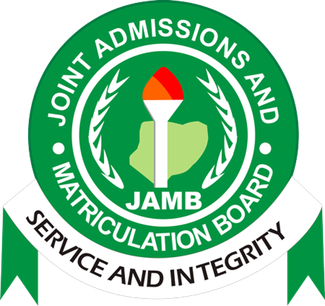
The Joint Admissions and Matriculation Board (JAMB) may prosecute and ban about 6,319 candidates found guilty of technology-driven cheating, from sitting for its organised Unified Tertiary Matriculation Examination (UTME).
The Special Committee on Examination Infractions set up by the board, recommended that the candidates found guilty of examination malpractices in the 2025 UTME should be banned from sitting for the examination between one to three years.
Chairman of the Committee, Dr. Jake Epelle who read out the recommendations on Monday, said there were documented 4,251 cases of ‘finger blending’, 190 cases of AI-assisted image morphing, 1,878 false declarations of albinism, and numerous cases of credential forgery, multiple NIN registrations, and solicitation schemes.
“This fraud is not the work of candidates alone—it is sustained by syndicates involving some CBT centres, schools, parents, tutorial operators, and even technical accomplices,” he said.
Dr. Ekpelle warned that if left unchecked, “examination malpractice would continue to erode merit, undermine public trust, and destroy the very foundation of Nigeria’s education and human capital development.”
He said the recommendations were meant to contribute to strengthening JAMB, safeguard the future of education in the country and building a country where merit, not malpractice, determines destiny.
“To restore integrity to Nigeria’s admission system, we propose a multi-layered framework built on detection, deterrence, and prevention,” he added.
Among the recommendations by the committee were deployment of AI-powered biometric anomaly detection, dual verification systems, for real-time monitoring, as well as a National Examination Security Operations Centre; cancellation of results of confirmed fraudulent candidates and imposition of bans of between one to three years, as well as prosecution of both candidates and their collaborators, and creation of a Central Sanctions Registry accessible to institutions and employers.
Other recommendations is the strengthening of “mobile-first self-service platforms, digitise correction workflows, tighten disability verification, and ban bulk school-led registrations.”
The committee further recommended amendment of “JAMB Act and the Examination Malpractice Act to recognise biometric and digital fraud, and provide for a Legal Unit within JAMB.”
JAMB Registrar, Prof. Ishaq Oloyede, while receiving the report, assured that the board would prioritise implementation of the recommendations, particularly those within JAMB’s mandate, while it would consult the Minister of Education, Dr Maruf Tunji Alausa, on some of the issues.
“Examination malpractice is not a victimless crime. It devalues education, cheats hardworking candidates, and produces incompetent professionals, engineers who cannot build, doctors who endanger lives, and graduates unfit to contribute to society,” he said.
Oloyede who observed that 80 per cent of malpractice cases were orchestrated by parents, warned that such complicity entrenches children in dishonesty and perpetuates underdevelopment.
While reporting a decline in traditional malpractice as only 140 cases were recorded this year, he cautioned that new technology-driven infractions remain a growing threat.
The JAMB Registrar disclosed that the board was pursuing a three-pronged strategy involving sanctions, investment in integrity through technology, and moral education to combat malpractice.
The committee, composed of experts from academia, technology, security, civil society, and law, was given six clear terms of reference, including investigating methods of malpractice, reviewing the cases of 6,458 suspected candidates, and recommending sanctions and preventive measures.




